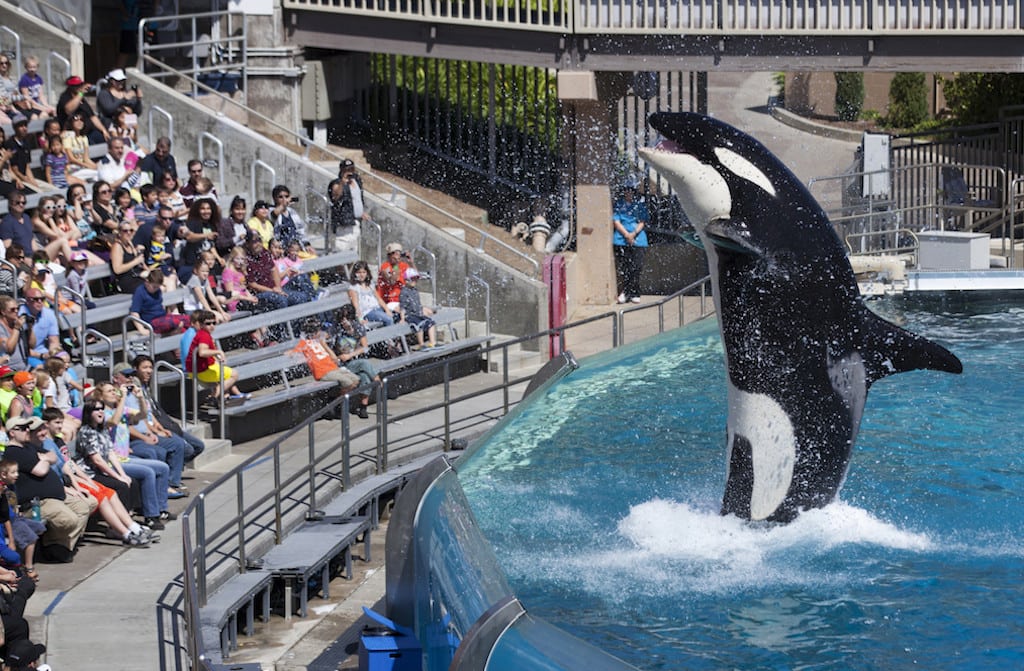Skift Take
SeaWorld has been trying to emphasize how it rescues sea creates and allegedly humanely treats orcas in captivity, but a segment of the public just isn't buying it, as SeaWorld's recent attendance figures show.
Shares of SeaWorld Entertainment were tanking August 13 after the theme park company conceded that adverse publicity about restrictive California legislation, which comes on the heels of the Blackfish documentary, negatively impacted attendance.
SeaWorld has been loathe to admit that the criticism of its handling of killer whales used in its shows has hurt attendance, but stated in its second quarter earnings report: “In addition, the Company believes attendance in the quarter was impacted by demand pressures related to recent media attention surrounding proposed legislation in the state of California.”
The California legislation, which was tabled in April, would have banned keeping the orca whales at SeaWorld San Diego.
In the second quarter, SeaWorld attendance increased a tepid 0.3% to 6.6 million people. Revenue fell 1.5% to $405.2 million.
California Criticism
SeaWorld stated that attendance actually fell at its destination parks, and that in addition to the negative publicity growing out the the California legislation, the attendance numbers were negatively impacted by the late start to summer by some schools, and by new attractions at competitors’ parks.
SeaWorld CEO Jim Atchison said during the company’s second quarter earnings call August 13 that the company is “disappointed” in its overall performance, and would continue its marketing efforts to counter the negative publicity.
“We also continue to ramp up our communication initiatives through our Truth campaign and other national marketing efforts to build and protect our brands as well as to counter the recent media attention from the legislation proposed in California,” Atchison said. “We’ve seen the early benefits of these initiatives and expect to build on them through 2014 and into 2015.”
A Temporary Crisis
Atchison views the Blackfish controversy as something that will blow over. A more long-term issue for the company, he argues, is repositioning SeaWorld parks to cope with heightened competition.
Asked why the California legislation, which was tabled in April, became an issue in the quarter ending June 30, Atchison said: “With respect to the California legislation, as we spoke in May, realized that really the full year was quite ahead of us, and at that point in time we were really still grappling with just what impact there would be related to the news attention around that legislation. So I’m not sure that we had a clear view on what that would look like. That’s a rather unprecedented event for us and difficult to model in that respect.”
Atchison said SeaWorld Entertainment pays a lot of attention to the SeaWorld brand.
“… We see opportunities for us to further kind of build on that brand and build on the fifty years of history we have. So we’re endeavoring to do that,” Atchison said.
The End of the Southwest Relationship
Southwest Airlines recently announced it would cut ties with SeaWorld at the end of 2014, but allowed Mark Travel, which operates Southwest Vacations, to continue offering tickets to SeaWorld.
“There were not significant dollars exchanged,” Atchison said of the Southwest relationship. “It was really a collaborative marketing relationship with a partner that we did for 25 years and it had a great run. And we certainly wish them well and it’s a great opportunity for us to look at another airline partner, as well.”
The Daily Newsletter
Our daily coverage of the global travel industry. Written by editors and analysts from across Skift’s brands.
Have a confidential tip for Skift? Get in touch
Tags: earnings, orlando, san diego, seaworld, theme parks
Photo credit: Visitors are greeted by an Orca killer whale as they attend a show during a visit to SeaWorld in San Diego, California March 19, 2014. Mike Blake / Reuters
